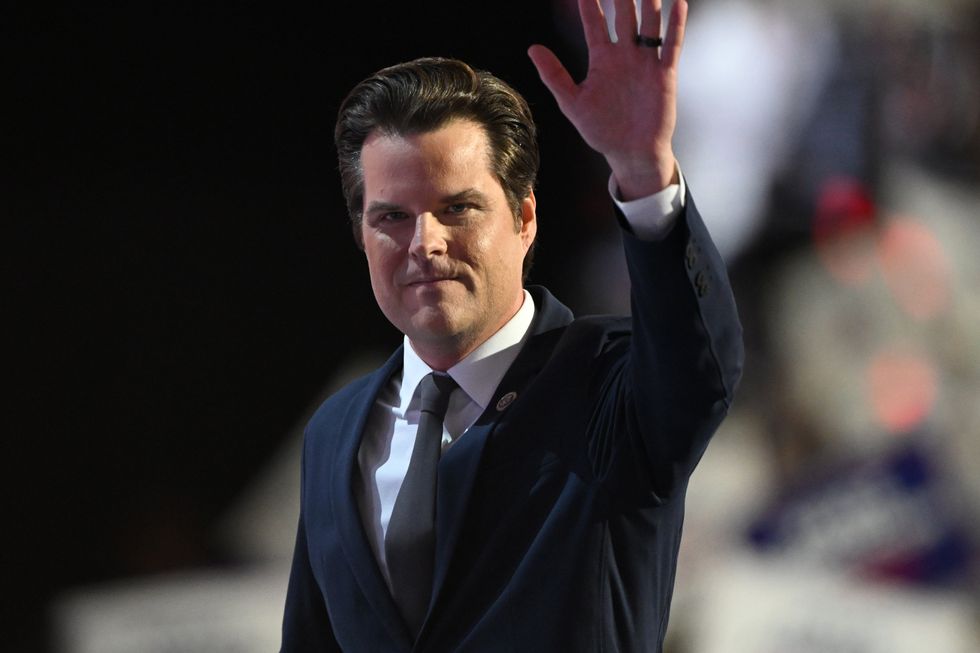To sleep, perchance not very well, by taking melatonin
'While taking it can be timed to help overcome jet lag, melatonin is no good for chronic sleeplessness'



Americans are spending more money on melatonin than they ever have, while at the same time, a growing percentage of adults, 37%, complain that they’re getting worse sleep.
Experts have a simple explanation for the mismatch, and it’s bad news for the 67 million Americans, or about 27% of adults, who use the supplement: While taking it can be timed to help overcome jet lag, melatonin is no good for chronic sleeplessness.
“There’s not enough strong evidence on the effectiveness or safety of melatonin supplementation for chronic insomnia to recommend its use,” according to the National Center for Complementary and Integrative Health, a division of the U.S. National Institutes of Health. In addition, neither the American Academy of Sleep Medicine nor the American College of Physicians endorses the use of melatonin to treat insomnia.
“Melatonin is almost never an appropriate supplement to treat insomnia,” said Michael Grandner, director of the Sleep and Health Research Program at the University of Arizona. “In clinical studies, it’s generally not better than a placebo.”
With 84 million Americans saying they don’t get the recommended seven to nine hours of solid sleep a night, and with 50 to 70 million of them suffering from a sleep disorder, there’s a big market to tap. Melatonin, which is cheap and easy to make, is everywhere on drugstore and supermarket shelves — in pill form, as gummies, and as part of a mix of ingredients that advertising and packaging claim will gently deliver the pill popper to La-La Land. Testing, however, reveals that when it comes to acting as a straight-up sleep aid, melatonin is most effective at separating the sleepless from their money. Merchants collected $2.2 billion in melatonin salesfrom bleary-eyed Americans in 2022, a number expected to rise to $8.6 billion by 2032.
“I would argue that melatonin is the most misused supplement in the world,” said Michael Breus, widely known as the Sleep Doctor.
Melatonin’s rising sales reflect a paradox of contemporary medicine. On the one hand, people believe modern science can solve any problem. On the other, spurred largely by the power of the internet, many people ignore expert advice, opting instead to research and treat their own symptoms and often paying for slickly marketed miracle cures.
“Snake-oil salesmen have always been around, but today’s technology is fueling a dangerous trend,” said Marschall S. Runge, executive vice president for medical affairs at the University of Michigan, dean of the medical school, and CEO of Michigan Medicine. The lack of any government oversight means peddlers can make “outlandish claims about products that promise to cure ringing ears, prevent colds and flus, kill pain, and shed body fat.”
Like many of those products, melatonin offers unproven relief for a very real concern. The crucial role sleep plays in overall wellness has received wide attention in recent years, as Americans report high levels of stress and a range of physical ailments. “You can’t go to a cocktail party anymore without people talking about their sleep problems,” said Wendy Troxel, a senior behavioral scientist at the RAND Corporation and author of “Sharing the Covers: Every Couple’s Guide to Better Sleep.”
In a culture that believes there’s a pill for every problem, melatonin seems just what the doctor ordered. It’s a natural hormone whose production the body increases in response to darkness and decreases whenever there’s light. It works to regulate the body’s 24-hour internal clock, also known as circadian rhythms. Decades ago, travelers embraced it as a proven way to recover from jet lag. It’s easy to see how such a pill transformed from a treatment for the ravages of long plane rides into a nightly sleep aid. A study reported in the Journal of the American Medical Association found that its use quintupled between 1999 and 2018.
“Melatonin is a sleep regulator, not a sleep originator,” Breus said.
If melatonin is not an effective sleep aid, why has its use exploded? Experts point to a variety of factors. Foremost is the strong placebo effect when it comes to insomnia treatment. Believing that melatonin will improve sleep can help people feel more relaxed when they get into bed, and they feel as if they can stop trying so hard to fall asleep. Couple that with the misery that insomniacs suffer in their frantic search for a solution, and they become vulnerable marks.
“When people aren’t sleeping, they’re desperate, and it’s not a normal desperation,” said Breus, who estimated that he appeared on Dr. Mehmet Oz’s TV show 40 times. “It reaches into the depths of their souls. No sleep for two or three nights? They’ll do anything. We talk to prisoners of war, who say they could handle the beatings, the starvation. It was the sleep deprivation that almost got them.”
Melatonin’s popularity has also been driven by fears about pharmaceutical sleeping pills, which can be dangerous if misused. In addition, our pill-first culture has gotten people used to the convenience of a daily dose as opposed to a steady regime of therapeutic behavior that can be tough to stick to.
More broadly, melatonin sales are rising thanks to little or no oversight from the U.S. Food and Drug Administration, which categorizes melatonin as a supplement rather than a drug. This allows manufacturers to make misleading claims about product testing and effectiveness while offering few avenues for dissatisfied customers to remedy any perceived rip-offs or force improvements on the industry through the legal system.
“One of the biggest pet peeves I have is the mismarketing of sleep supplements,” said Breus. “Almost nobody who sells any form of sleep supplement has done any testing on that particular preparation. Everybody is saying that they have clinically tested ingredients — what that means is 30, 40 years ago somebody did a clinical test and now your preparation is a mix of a lot of other things.”
Breus singles out a product called Relaxium Sleep, which runs a TV commercial carrying the celebrity endorsement of former Arkansas governor and current radio host Mike Huckabee. Relaxium contains melatonin, among other preparations. “They say all the ingredients have been clinically tested,” Breus said. “What they don’t tell you is they haven’t been tested together.”
Relaxium, manufactured and marketed by a company called American Behavioral Research Institute, was the target of a 2022 class-action lawsuit spearheaded by a Dutchess County, New York, woman named Aimee Lomedico. In the complaint, Lomedico called the claims made by Relaxium that it’s a “scientifically” tested and proven dietary supplement “threadbare and illusory” and are “intended to exploit the imprimatur of ‘scientific authority’ to elicit trust from the average consumer.”
Though Relaxium’s promotional materials claim that it contains a unique, proprietary concoction to help the customer sleep, the lawsuit countered that “this is an exceedingly common herbal cocktail found in countless other sleep aid nutraceuticals whose efficacy has long been deemed insignificant when compared to a placebo.”
“Simply stated,” the complaint said, “the clinical study touted by Relaxium did not actually test any of the ingredients in Relaxium Sleep and, as such, does not prove anything, let alone prove the effectiveness of these ingredients, as falsely claimed, in alleviating or treating sleep disorders.”
The legal complaint also said that the doctor behind Relaxium, Eric Ciliberti, called himself a sleep expert but is, in reality, an ophthalmologist who has “no discernible experience or background in treating sleep disorders of any variety.”
The complaint was settled without the terms disclosed.
Messages seeking comment from Timea Ciliberti, American Behavioral Research Institute’s executive chairwoman and founder, were not returned. Attempts to get comment from Lomedico and her lawyers, Denlea & Carton in White Plains, New York, were unsuccessful.
There’s a common misconception, which springs from the fact that melatonin supplements are typically made from natural ingredients, that melatonin is completely safe, Troxel said.
“Natural does not necessarily mean safe,” she said. “It’s not benign.”
While melatonin generally won’t cause problems, it can still trigger headaches, dizziness, nausea, and, ironically, drowsiness, according to the Mayo Clinic. Less common side effects include short-lasting feelings of depression, mild tremors, mild anxiety, abdominal cramps, irritability, reduced alertness, confusion, or disorientation.
In its ability to help regulate the body’s rhythms, melatonin can also mess with other clocks in the body and render medications for blood pressure, diabetes, contraception, and seizures less effective.
As more American adults pop melatonin, children are also at risk. One report published by the CDC estimated that “unsupervised melatonin ingestion by infants and children” aged five and younger may have led to 10,930 emergency department visits from 2019-2022.
Dosage is also a problem. Sleep experts put the proper dosage at 0.5 mg to 2 mg. “Unfortunately, 95% of the melatonin that’s sold is in an overdosage format,” typically in dosages of 10 mg or more, Breus said. “Therefore, almost everyone taking melatonin, which is inappropriate to begin with, is overdosing.”
There’s a parallel here with the weight-loss industry, which frequently offers convoluted solutions that come with price tags while, for a lot of people, the answer is difficult but simple: Eat less and exercise more. When it comes to sleep, “skills, not pills” is what Troxel called the mundane but difficult-to-maintain habits that can defeat insomnia without shelling out a lot of money for supplements: a consistent wake time, no caffeine past noon, a warm evening bath, leaving phones and other screens out of the bedroom, meditation, a few minutes of soothing music or a cup of herbal tea – not for its medicinal properties, but because when done routinely, such relaxing habits can signal the body that sleep is on the way.
“Support healthy sleep by practicing boring habits,” Troxel said. “For people who really suffer from a clinical disorder, there are treatments, but they are behavioral, not in pill form.” Troxel, like a lot of sleep experts, recommends cognitive therapy.
Breus said many interactions between an insomniac and their physician are what he calls “door-handle diagnoses” – the physician has a hand on the door to leave when the patient says, “Oh, by the way, I don’t sleep so well.” So the doctor writes a prescription and says the patient should come back in two months and everything should be okay. “Like it will magically heal itself with a medication,” he said.
“As a culture, we need to move away from the idea that there’s a pill for everything,” Troxel said. “Prescribing medication first is a disservice when behavior is the best way. With a chronic disorder like insomnia, the insomnia will outlast the medication.”
SUPPORT TRUTHFUL JOURNALISM. MAKE A DONATION TO THE NONPROFIT WND NEWS CENTER. THANK YOU!
Originally Published at Daily Wire, World Net Daily, or The Blaze
What's Your Reaction?
































































































